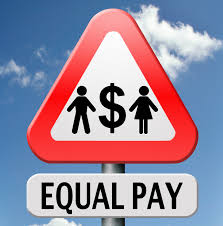Pay equity in the spotlight
7 December 2016

In Iceland, women have symbolically stopped working at 2:38 pm, the time during a standard 8 hour day at which Icelandic women say they begin to work for free because of pay inequality. In France, women, along with many men, stopped work to protest at 4:34 pm on 7 November, as for the rest of the year women say they are volunteers.
Our newly appointed Governor-General Dame Patsy Reddy recently chaired the Joint Working Group on Pay Equity Principles.
Pay equity is equal pay for work of equal value, regardless of gender. It is more extensive than equal pay within the same workplace because it compares a female dominated role with an equivalent one in an industry dominated by men.
The Joint Working group has representatives from unions, business groups and the government. The group came up with 16 principles of pay equity, as well as a process for workers who make a pay equity wage claim against their employers.
Encouragingly, the government has very recently agreed with all the recommendations (one with an added proviso) and will legislate to pass these developments into law in the future.
Nearly all readers will be affected by these changes; women, men working in female-dominated fields, anyone who has a partner within those categories, or those with children or elderly parents in care. Many employers reading this column should anticipate claims for pay rises based on pay equity under the proposal.
What will the claims look like? Which employers should expect claims to come their way? Both questions have simple answers.
Pay equity claims will be able to be made at any time and need not be linked to an existing collective bargaining cycle.
An employee need only raise their claim with their employer. The parties must then attempt to resolve it on the basis of good faith bargaining, with guidance from pay equity principles. In doing so, the parties must undertake a thorough, unbiased assessment of the skills, responsibilities, conditions and effort required by the role.
Comparators (similar roles that are not "women's work") can be used from within the business, similar businesses, or the same industry or sector when available, so long as the comparator has not also been systemically undervalued.
Employers will be likely to receive claims where their workforce is largely female (such as nurses or aged-care workers) or where a specific area of work within business is largely performed by women (such as secretaries in corporate offices).
This landmark change was sparked by an aged-care worker, Kristine Bartlett. With the support of her union she brought a claim against her employer TerraNova Homes.
She claimed that because her work was predominantly performed by women she received a lower wage. If her work was predominantly performed by men she claimed she would receive a higher wage.
The courts accepted that this claim can be made under the Equal Pay Act 1972 and now the Employment Court must decide Bartlett's case. The case may settle before then or it might be decided under the new principles.
Bartlett's case prompted the Government to establish the Joint Working Group to provide "practical and specific" guidance on how matters of pay equity can be raised, the processes to progress these matters, how jobs can be valued, and the nature and kinds of evidence to be considered.
Finding a similar business or industry that is comparable and not predominantly performed by women may not be easy but that is what has to be done.
Once the legislation is passed, workers will begin knocking on their employers' doors. They may claim they are not being paid what they ought to be. The employers will need to decide whether to accept there is a pay equity issue.
If an employer rejects the claim, the employee can have the Employment Relations Authority determine whether it is a valid pay equity claim. Recognised claims will then be referred back to the parties to bargain for a resolution.
All of this is likely to lead to increased union membership, particularly by women, as they will often require union assistance to satisfactorily resolve claims.
Employers may feel that 2016 has caused somewhat of a headache for them, with new, stricter Health and Safety Legislation, changes to parental leave, and now pay equity claims. The good news, from the employer's perspective, is that the legislation hasn't yet been passed so employers have time to come to terms with the brave new world of pay equity.
But one day in the not too distant future, you may hear a knock on your office door followed by a pay equity claim - so employers, be prepared and start saving.


